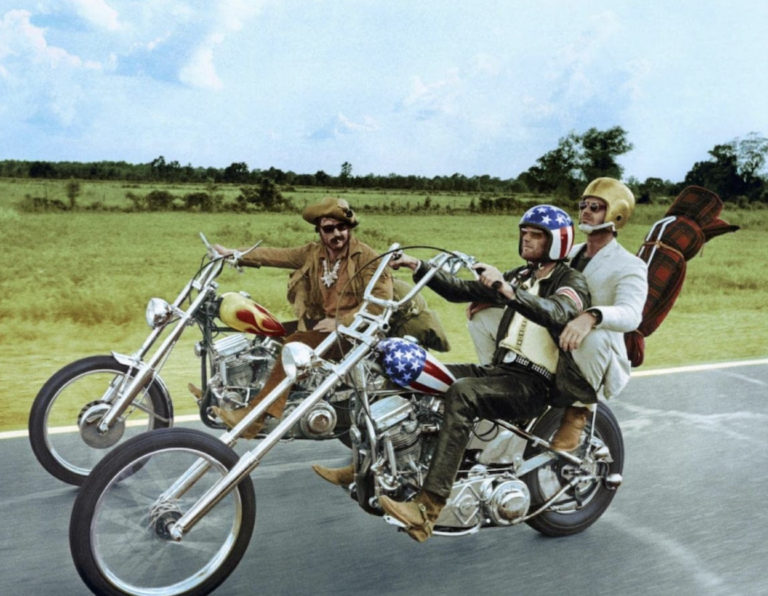
It’s been more than half a century since Dennis Hopper and Peter Fonda rode off into the sunset, but it looks as if Easy Rider, their iconic cycling film may be recycled for a new generation of restless road nomads. The rights-holders are reportedly buoyed with the recent success of Ryan Coogler’s Creed, which drew inspiration from the Rocky Balboa franchise that originated in the 1970s.
Variety reported this week that Easy Rider is in the early stages of a reboot with the blessing of the original rights-holders. The original film, a two-time Oscar nominee, was released by Columbia Pictures in 1969 with a screenplay by Fonda, Hopper, and Terry Southern.
It narrated a cross-country road trip by two cocaine-dealing hippies on their way to Southern California.
The film about Sixties rebelliousness helped fuel Jack Nicholson’s career when he landed the role of alcoholic lawyer George Hanson. The role had originally been written for Rip Torn, who left the project after an argument with Hopper.
Easy Rider was a success both at the box office and as a cultural landmark: it grossed more than $60 million worldwide on a budget reputed to have been only $400,000
.
This week, Maurice Fadida of Kodiak Pictures, one of the rights-holders, was quoted in Variety as saying: “our goal is to build upon the counterculture and freedom narrative the original left us with, and give the youth of today a film that pays serious attention to their own countercultures and challenges,” He added: “What the young viewers of today are experiencing in their everyday lives may seem crazy to older generations, but it can very well become the societal norm, as was the case with the cultural shift of the late 1960s. We are hoping to play a part in that shift.
”
To that end, the producers are soliciting proposals from a new generation of screenwriters and directors to help them with the reboot. The new project should not be confused with Easy Rider: The Ride Back, a 2012 prequel to the original film, directed by Dustin Rikert, who’d secured the legal rights to the name. Rikert’s film presented a much more “conservative” view of the characters and storyline.

